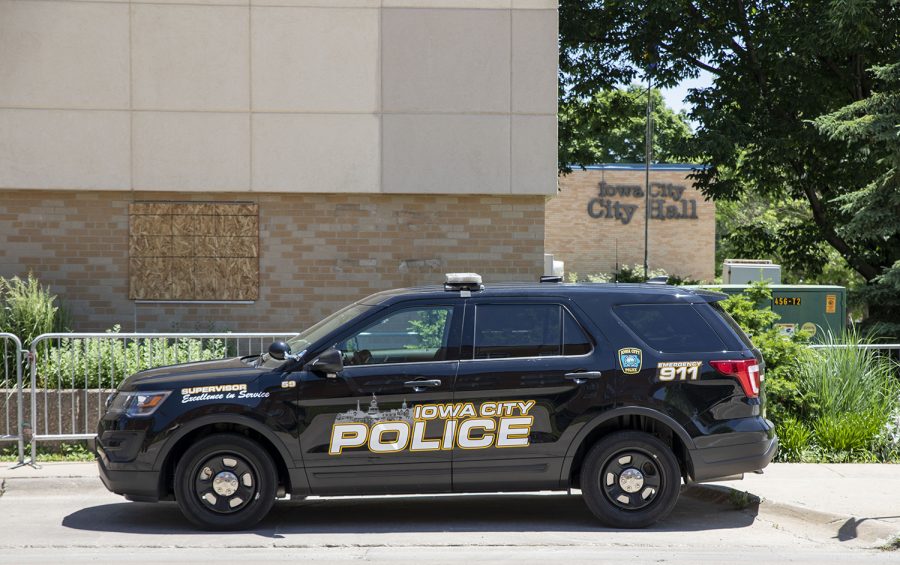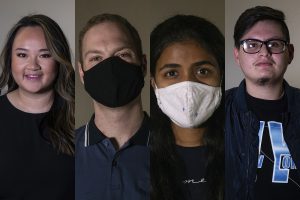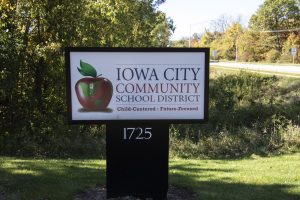New Iowa City Police Department policy discourages stops for minor traffic violations
A new ICPD policy implemented at the end of October discourages officers from stopping residents based only on minor traffic and pedestrian violations.
Iowa City Police Dept. 410 E. Washington St.As seen on Monday June 8, 2020.
November 10, 2020
A new Iowa City Police Department policy will limit when police officers stop residents based only on minor pedestrian/traffic violations that do not pose an immediate threat to public safety.
The policy was introduced in a memo from Interim Police Chief Denise Brotherton to the rest of the department, stating that violations no longer warranting a dedicated stop include cracked windshields, loud exhaust, cracked taillights, window treatments, and jaywalking.
Brotherton said in the memo that historical data points show minority drivers often have a higher chance of being stopped by law enforcement than non-minority drivers, and that this new policy would hopefully contribute to a reduction of that disparity.
“The desired outcome is for the public to view traffic enforcement solely as an effort to help ensure safety of the public and not as a punitive action for non-safety related issues,” Brotherton said in the memo. “The intent of following this traffic-stop guideline is also consistent with our overall goal of eliminating any occurrence of bias-based policing practices.”
Brotherton’s memo states public-safety data regarding this new policy will be reviewed after 60 days and the results from that review will guide the police department with continuing changes to the department’s traffic policies. The policy was put into place Oct. 29.
RELATED: Local disability support groups, ICPD working to implement de-escalation procedures
City Manager Geoff Fruin updated the Iowa City City Council on the new policy in a separate memo on Oct. 28, where he said the Iowa City Police Department was typically involved in 12,000 traffic stops a year and that even when these stops don’t result in fines or arrests, they can negatively impact the relationship the police department has with residents.
He notes in the memo that an exception to the new policy could arise if an officer were to issue a driver B.U.L.B.S! voucher on behalf of the department, which allows the driver to have a broken light on their vehicle repaired at no cost through participating local auto-repair shops.
City Councilor Susan Mims said she thought the new policy made sense and could potentially result in fewer unnecessary interactions between officers and the public.
“I would hope that this works well in terms of finding different ways to try and enforce some of those issues like a crack in the windshield or things like that, that don’t at that moment pose a public-safety concern,” Mims said. “I think it can save time for police officers. It reduces contact, which hopefully reduces any kind of disparate contact between the police and the public. I’m certainly willing to give it a try and I hope that it works well for us.”
Mims said once the department reviews the data that she would like to hear more from officers and the public regarding the policy’s effectiveness.
“I want to make sure that we’re not making a change that looks good on paper and looks good politically, that could have some negative ramifications,” Mims said. “I’m not saying that’s the case, I just want to make sure we’re reviewing it from all angles.”






